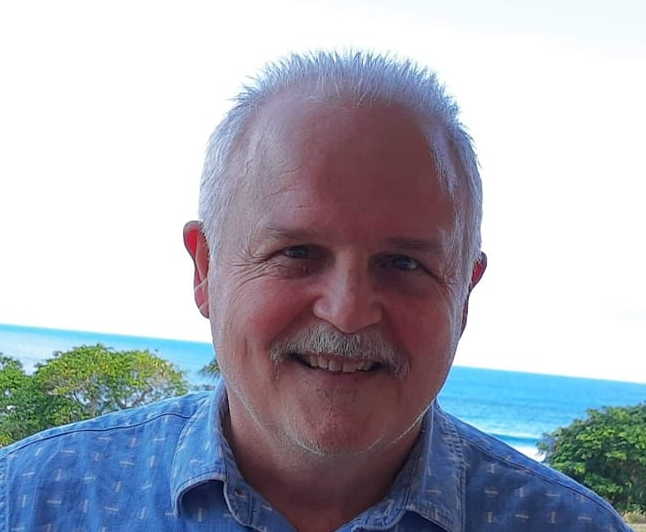89th anniversary of Social Security
Today, Aug. 14, 2024 marks the 89th anniversary of the Social Security Act of 1935. The law applies in the CNMI and affects most of us.
THE LAW’S DESIGN
Social Security initially focused on what is now known as the Old-Age, Survivors, and Disability Insurance (OASDI) program, administered by the Social Security Administration. Over the years the Social Security Act has been expanded to include such provisions as benefits for the spouse and minor children of a retired worker (1939), a cost of living adjustment (COLA) at irregular intervals (1950), a disability program (1954), early retirement at age 62 with reduced benefits (1961), Medicare health care benefits (1965), the Supplemental Security Income (SSI) program (1972), COLA on an annual basis (1975 & 1977), taxation of some Social Security benefits (1983), coverage of new federal employees (1983), full retirement age gradually increased from 65 years to—for those born in 1962 or later—67 years (1983), Temporary Assistance for Needy Families (TANF) (1997), State Children’s Health Insurance Program (SCHIP) for low income citizens (1997), and the No Social Security Benefits for Prisoners Act (2009).
WHO PAYS?
Social Security OASDI is funded primarily through payroll taxes. For employees, the Federal Insurance Contributions Act (FICA) tax rate is 6.2%, withheld from wage and salary earnings, and 6.2% matched by the employer. The maximum earnings subject to FICA taxation varies annually. In 2024, the FICA taxable earnings ceiling is $168,600. Wage and salary earnings above this amount are not taxed. Self-employed individuals are subject to Self Employed Contributions Act (SECA) taxes, which are the same as the FICA employee and employer taxes combined. There is also a Medicare tax of 1.45% for most employees, matched by the employer, with an additional 0.9% for those earning over $200,000 annually. Unlike FICA or SECA taxes, there is no maximum earning level for Medicare tax.
IN THE CNMI
Since Oct. 1, 2012, pursuant to a memorandum signed by SSA and the late governor Eloy S. Inos, all CNMI government employees have been participating in Social Security contributions through FICA tax withholding. So, in the future, Social Security will become increasingly important to CNMI residents in their retirement years.
THE FUTURE OF SOCIAL SECURITY BENEFITS
Unfortunately, in May 2024 the Social Security Trustees have projected that the combined OASDI trust fund will be depleted in 2035. This is due to demographic changes, as the “baby boomers” have moved or are moving out of the work force and into retirement, replaced by a smaller working population. Thus, we only have a few years to make changes that will save Social Security.
Various proposals have been made to extend the OASDI trust fund depletion date, summarized in Wikipedia:
• Lift the payroll tax ceiling. It is adjusted for inflation, currently $168,600. Taxing higher incomes would bring in more money.
• Increase Social Security taxes. If workers and employers each paid 8.0% FICA tax (up from today’s 6.2%), it would provide solvency through 2090. Self-employed persons would pay 16.00% SECA tax on earnings (up from today’s 12.4%) under this proposal.
• Raise the retirement age(s). Raising the normal retirement age by two months per year until it reaches 69 in 2034 would reduce payouts and improve solvency.
• Means-test benefits. A phase out of Social Security benefits for those who already have income over $48,000/year ($4,000/month) would eliminate over 20% of the funding gap. This is not very popular, with only 31% of surveyed households favoring it.
• Change the cost-of-living adjustment (COLA). Several proposals have been discussed. Effects of COLA reductions would be cumulative over time and would affect some groups more than others. Poverty rates would increase.
• Reduce benefits for new retirees. If Social Security benefits were reduced by 3% to 5% for new retirees, about 18% to 30% percent of the funding gap would be eliminated.
• Average in more working years. Social Security benefits are now based on an average of a worker’s 35 highest paid annual salaries with zeros averaged in if there are fewer than 35 years of covered wages. The averaging period could be increased to 38 or 40 years, which could potentially reduce the deficit by 10% to 20%, respectively.
ANALYSIS OF PROPOSALS
All but the first two of these proposals would hurt beneficiaries of SSA Retirement and Survivors Insurance (RSI). While means-testing benefits might not hurt the poorest of the poor, it could be devastating to middle income retirees, especially those who have made FICA contributions for decades in expectation of maintaining their standard of living.
Raising the retirement age hurts the poor and those in physically demanding jobs, who are least likely to be able to continue working until 69. Already, a majority of RSI annuitants apply for early retirement at age 62. Either they cannot physically work anymore, or cannot afford to live on what they are earning. Raising the retirement age would essentially be balancing the OASDI budget on the lives of the poor.
COLA amounts are intended to prevent RSI retirees from being driven into poverty by inflation, while the pensions remain stagnant. COLA reductions would also be extending the OASDI program on the lives of the poor.
Likewise, reducing benefits for new retirees ends up hurting the poor of tomorrow. Finally, calculating benefits on the highest 38 or 40 years, rather than the current 35 years, is just another way of cutting benefits for the poor, that is, those with unstable employment histories or who have had physically demanding jobs.
In summary, the SSA OASDI program, including RSI, is becoming increasingly important in the CNMI as the Northern Mariana Islands Settlement Fund (NMISF) annuitants gradually pass away.
WHAT WE CAN DO
We should pay attention to potential solutions that have the potential to extend the life of the program.
Let us remain mindful that ignoring a problem does not make it go away.

Gregory Baka is a staff attorney of Marianas Office Micronesian Legal Services Corp.




